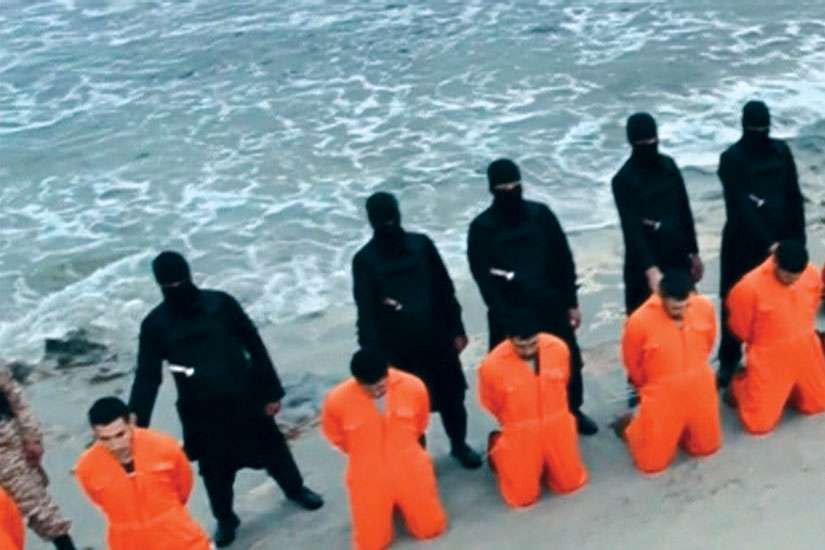“Canada is appalled by the atrocities,” Global Affairs Canada told The Catholic Register. “We believe that some of these show the hallmarks of genocide.”
The United Nations High Commissioner for Human Rights has said Daesh, as the self-proclaimed Islamic State calls itself, may have committed genocide, war crimes and crimes against humanity. Canada, along with the United States, the European Parliament and the United Nations, wants an “independent investigation and that a legal determination be made by a competent court or tribunal,” said a Global Affairs spokesperson in an e-mail.
The United Nations Convention on the Prevention and Punishment of the Crime of Genocide defines genocide as deliberate acts to “destroy, in whole or in part, a national, ethnical, racial or religious group.” These acts can include killing, causing bodily or mental harm, inflicting conditions intended to cause a group’s physical destruction, imposing measures to prevent births and forcibly removing children.
The Conservatives have been pushing Foreign Affairs Minister Stephane Dion to declare a genocide now. Shadow cabinet chair Jason Kenney has taken to describing the Islamic State as a “genocidal cult.”
In Europe, Catholic bishops welcomed a motion passed by the European Parliament that classified ethnic and religious cleansing by the Islamic State as genocide, but warned that calling it genocide must translate into action.
“Steps to prosecute criminals and bring them to justice are also imperative,” said Commission of the Bishops’ Conferences of the European Community general secretary Fr. Patrick Daley Feb. 4.
Pope Francis has spoken frequently about the atrocities inflicted on Middle East Christians. Last June, he referred to “this third world war” of terrorism and how “a form of genocide is taking place, and it must end.”
The U.S. Commission on International Religious Freedom has urged the American government to classify various minorities living under Islamic State rule, including Muslim minorities, as victims of genocide.
United States Secretary of State John Kerry has formally and pointedly used the word genocide.
“In my judgment, Daesh is responsible for genocide against groups in areas under its control, including Yezidis, Christians and Shia Muslims. Daesh is genocidal by self-proclamation, by ideology and by actions — in what it says, what it believes and what it does,” said Kerry on March 17.
But Kerry at this point isn’t calling for the United States to do anything more than it is already doing in co-ordinating a bombing campaign against the Islamic State.
“Ultimately the full facts must be brought to light by an independent investigation and through formal legal determination made by a competent court or tribunal,” said Kerry.
Kerry’s statement is “a historic first step towards addressing the human cost of IS’s atrocities,” said a statement from the United States Holocaust Memorial Museum in Washington. But the museum, a major centre for genocide research, wants more than just rhetoric.
“This finding of genocide must not merely be an acknowledgement of their suffering. Rather, it should serve as a call to action to protect and defend those remaining populations from the crimes that continue to be perpetrated today,” it said.
The Catholic Near East Welfare Association in Canada is not interested in a debate over whether or not the murderous, fake caliphate in eastern Syria and western Iraq has committed genocide.
“The issue is not the terminology,” said CNEWA Canada executive director Carl Hetu. “For us, as an agency, we feel this is an empty debate. Daesh is dangerous. They’re killers. It’s clear they need to be stopped. The actions of our own government need to reflect that.”
However, Aid To The Church In Need-Canada believes the g-word needs to be applied now.
“It’s going to show the seriousness of the situation,” said Aid To The Church In Need-Canada executive director Marie-Claude Lalonde. “When you talk about other genocides, you see the face of people changing when you use the word genocide. It means that it’s the worst it can be.”
Lalonde wants both government and the public to be in no doubt about the seriousness of the situation Christians face in Iraq and Syria.
“We’re not talking about genocide just to talk about it, but because we want to have people really mobilized to do something,” she said.
Lester B. Pearson signed the UN Convention on the Prevention and Punishment of the Crime of Genocide on behalf of Canada Nov. 28, 1949. It states that persons charged with genocide should be tried in the territory in which the genocide occurred. While Canada would readily support a prosecution of Islamic State leadership, those leaders are not in custody and it’s unclear who is in a position to arrest them.


